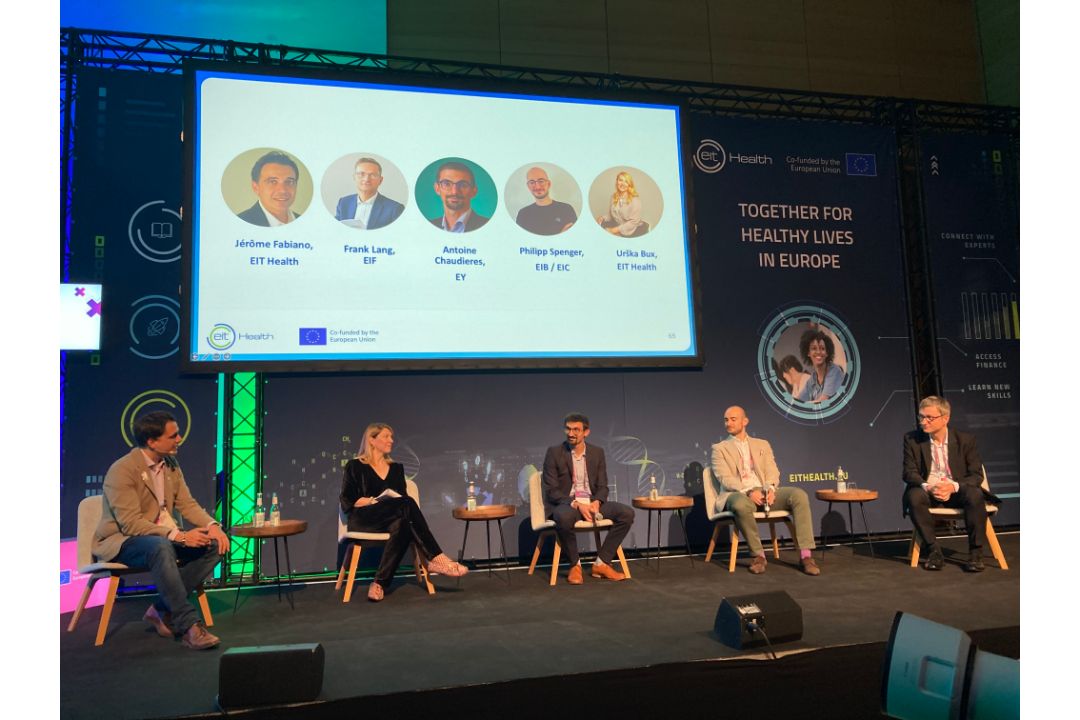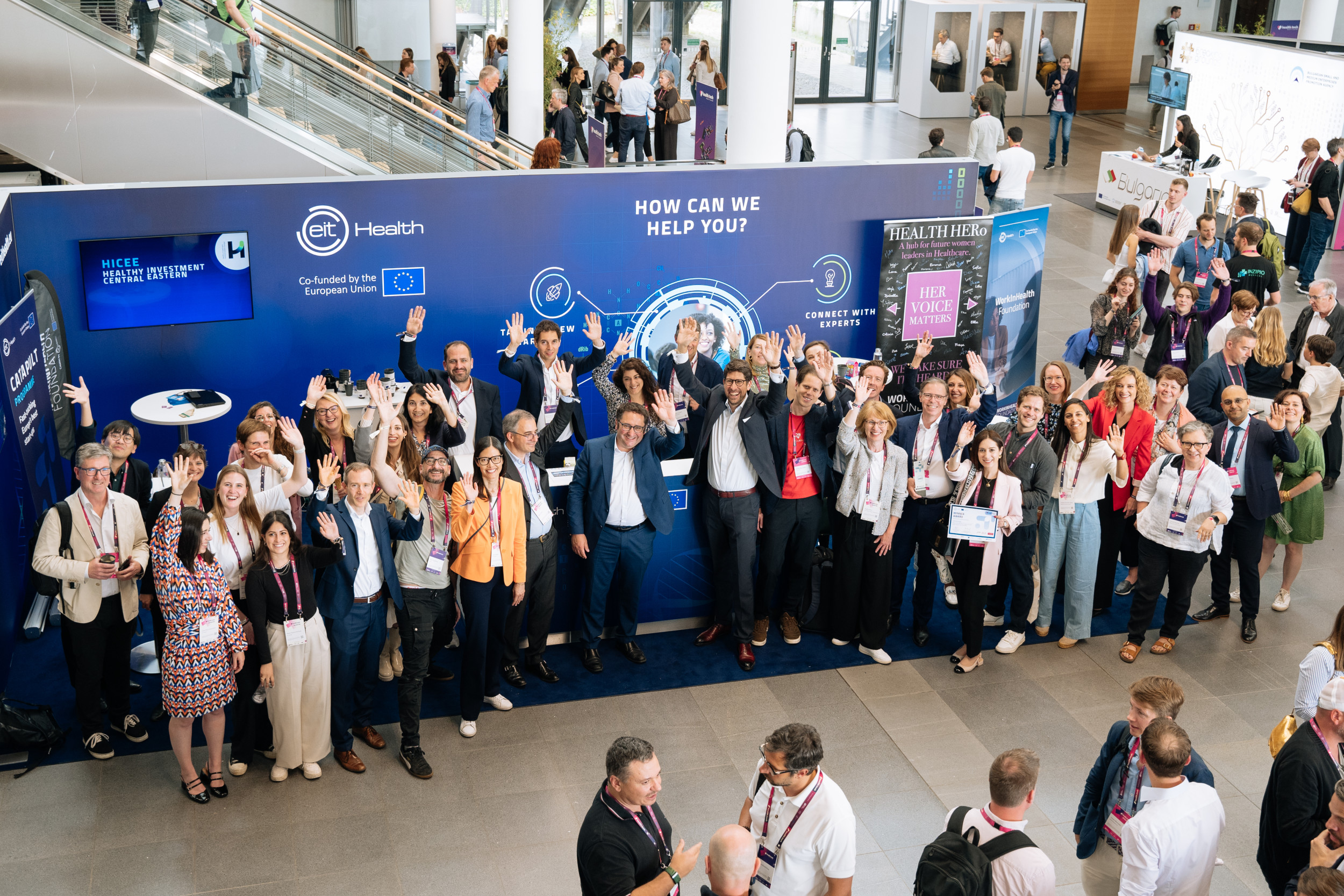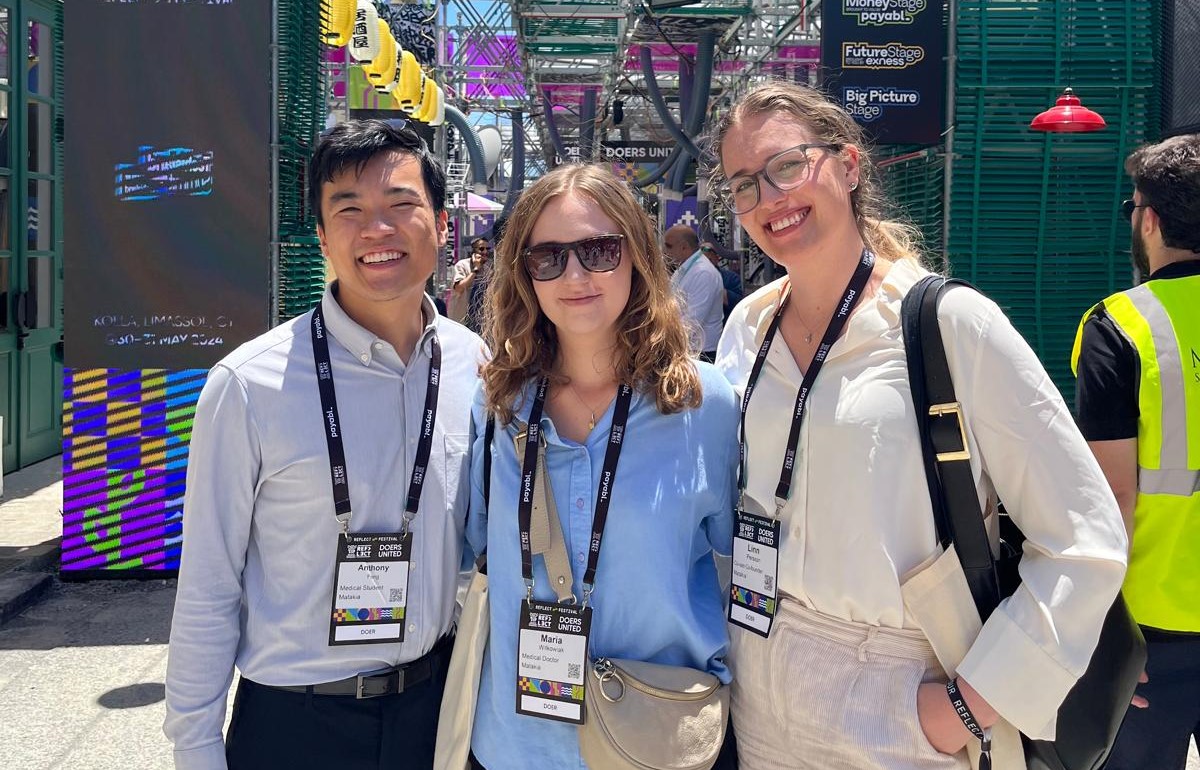12th December 2023
In the latest instalment of our ‘Meet the Team’ series, we interview our Entrepreneurship Lead, Shona D’Arcy. An electronic engineer with a Ph.D. in speech recognition, Shona D’Arcy founded Kids Speech Labs in 2018, aiming to tackle the escalating issue of waiting lists for children’s speech and language therapy within national health services. One of her other standout projects was leading the design and execution of the world’s largest multisite trial for a neuromodulation device aimed at tinnitus treatment, a pioneering digital-first clinical trial based in St. James Hospital, Ireland.
Now assuming the role of Entrepreneurship Lead at EIT Health Ireland-UK, Shona envisions a collaborative approach by offering diverse insights from her start–up journey. She will support early-stage start-ups to grow, and help showcase Irish and UK companies on the European stage.
Q1. Tell us about your journey in combining digital health expertise with speech recognition. What key insights did you gain from that experience?
My research background was in speech recognition technology, and I’ve been working in the digital health field for over a decade. Over the years, speech recognition technology started to move out of academia and into real-world applications. I wanted to combine these two areas of expertise to solve a real-world problem in healthcare systems, both in Ireland and the UK. My initial goal was to build an AI assessment of speech and language skills underpinned by AI and speech recognition. Unfortunately, the industry was still very paper-based, so the data wasn’t there to develop this AI roadmap. We focused on the digital transformation of children’s speech therapy services, which applies across developmental services.
The key insight was that, while we have deep tech in Medtech, some areas of healthcare are still paper-based, and we have only scratched the surface of transforming healthcare using available technology. Another insight was that preventative care is challenging to build a business model around compared to reactive healthcare.
Q2. What were the opportunities you came across while working with the underserved sectors of the health service?
The opportunities lie in patients driving the need for new models of care. Parents, in particular, want asynchronous healthcare that fits into their schedules. Delivering healthcare in a way that suits patients and carers is crucial. The shift towards asynchronous healthcare is being driven by families and patients who want to take ownership of their health. In sectors like pediatric developmental services that haven’t gone through digital transformation, educating healthcare professionals about new ways of delivering care is essential. Parents and carers will drive new forms of healthcare delivery.
Q3. What specific goals and initiatives do you plan to implement in your new role at EIT Health?
I aim to bring insights from different start-ups’ experiences in healthcare in terms of challenges they face. Having engaged with start-ups selling into primary care services and deep tech solutions, I want to identify common challenges and see how EIT Health can support them. The UK and Ireland role is fascinating as the UK is now back in the Horizon Europe community, presenting numerous opportunities. There are exciting companies in the UK with a focus on service provision and delivery within the NHS. I want to showcase Irish and UK companies on the European stage, helping them leverage the European network to expand their reach.
Q4. What excites you about joining EIT health?
What I like about EIT Health is the European dimension, the ability to incubate and accelerate start-ups onto a larger stage much faster. I joined at a time when exciting changes are taking place in the healthtech space, especially with the increasing ubiquity of AI. AI will have a significant impact on healthcare, clearing up inefficiencies in a safe and responsible manner. We’re going to see some exciting resources. I’ve come into EIT Health to support start-ups in healthtech, and we’re in a unique position with the changes happening in AI and the ability to leverage the European network. Companies can scale at a rate we’ve never seen before.
Start-ups aiming to scale into Europe and potential partners interested in joining our network, contact us today to learn more about our open opportunities: clc.ireland-uk@eithealth.eu
New report reveals skills gaps impeding healthtech innovation

A must-read for healthcare start-ups and venture capitalists
Perspectives on the HealthTech ecosystem

Key takeaways from the health.tech conference 2024
